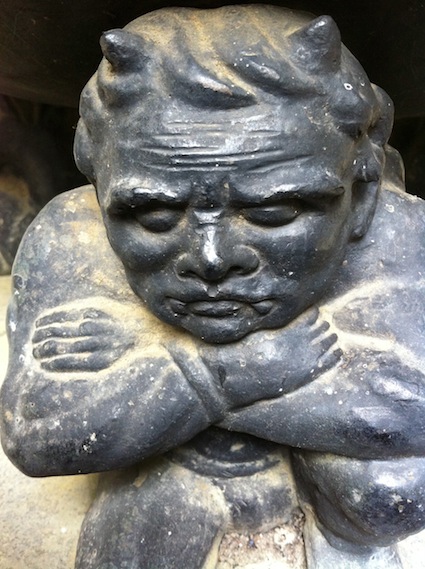アクラシアとアタラクシア
Schola Atheniensis (Italiane La
scuola di Atene) est clarissima pictura muralis operis techtorii Romae
inter annum 1510 et 1511
Palatio Apostolico in
Vaticano, iussu papae Iulii II, a Raphaele Sanctio Urbinati picta.
アクラシアとアタラクシア
Schola Atheniensis (Italiane La
scuola di Atene) est clarissima pictura muralis operis techtorii Romae
inter annum 1510 et 1511
Palatio Apostolico in
Vaticano, iussu papae Iulii II, a Raphaele Sanctio Urbinati picta.
★アクラシア(Akrasia) とは、古代ギリシャ語 で、統御がとれないことを意味する言葉で、「意志の無さ」とか「そうしてはいけないのにやっちまうこと」を意味する。ある、小学校校長が、未成年の青年を 「買春」し、その後の、警察当局に捕まり、その事情聴取に対して「教職員に倫理的教育をする立場として違法だとわかっていたが、性的欲望を抑えられなかっ た」と述懐するのは、典型的なアクラシアである。以下の説明にあるように、プラトン『プロタゴラス』やアリストテレス『ニコマコス倫理学』などに登場す る。
『ニコマコス倫理学』(1145a)では、人間が避けるべき悪を、(1)悪徳(カキアー)、(2)抑制のなさ(アクラシアー)、(3)獣性
(テーリオテース)に分けている。
"Akrasia (/əˈkreɪziə/; Greek ἀκρασία, "lacking command"), occasionally transliterated as acrasia or Anglicised as acrasy or acracy, is described as a lack of self-control or the state of acting against one's better judgment. The adjectival form is "akratic".The problem goes back at least as far as Plato. In Plato's Protagoras Socrates asks precisely how it is possible that, if one judges action A to be the best course of action, one would do anything other than A?/ In the dialogue Protagoras, Socrates attests that akrasia does not exist, claiming "No one goes willingly toward the bad" (358d). If a person examines a situation and decides to act in the way he determines to be best, he will pursue this action, as the best course is also the good course, i.e. man's natural goal. An all-things-considered assessment of the situation will bring full knowledge of a decision's outcome and worth linked to well-developed principles of the good. A person, according to Socrates, never chooses to act poorly or against his better judgment; and, therefore, actions that go against what is best are simply a product of being ignorant of facts or knowledge of what is best or good." - Akrasia.
アクラシア(/əˈkreɪρασία、ギリシア語 ἀκρασία, "lacking
command")とは、アクラシア(acrasia)と訳されることもあれば、アクラシー(acrasy)またはアクラシー(acracy)と英語化さ
れることもある。この問題は少なくともプラトンにまでさかのぼる。プラトンの『プロタゴラス』において、ソクラテスは、行動Aを最良の行動と判断した場合
に、A以外の行動をとることがどうして可能なのか、と問うている/対話『プロタゴラス』において、ソクラテスは「誰も進んで悪い方に向かう者はいない」
(358d)と主張し、アクラシアは存在しないと証言している。もし人がある状況を検討し、最善と判断した方法で行動することを決めたなら、その人はその
行動を追求するだろう。状況を総合的に判断することで、善の原理が十分に発達し、意思決定の結果や価値について十分な知識を得ることができる。ソクラテス
曰く、人は決して自分のよりよい判断に反して、あるいは悪い行動を選択することはない;したがって、最善であることに反する行動は、単に事実や最善または
善であることの知識に無知であることの産物である。
the Nicomachean Ethics.:"In VII.1–10 Aristotle investigates character traits—continence and incontinence—that are not as blameworthy as the vices but not as praiseworthy as the virtues. (We began our discussion of these qualities in section 4.) The Greek terms are akrasia (“incontinence”; literally: “lack of mastery”) and enkrateia (“continence”; literally “mastery”). An akratic person goes against reason as a result of some pathos (“emotion,” “feeling”). Like the akratic, an enkratic person experiences a feeling that is contrary to reason; but unlike the akratic, he acts in accordance with reason. His defect consists solely in the fact that, more than most people, he experiences passions that conflict with his rational choice. The akratic person has not only this defect, but has the further flaw that he gives in to feeling rather than reason more often than the average person...." https://plato.stanford.edu/archives/sum2017/entries/aristotle-ethics/#Akr
II.1-10でアリストテレスは、悪徳ほど非難されるものではないが、美徳ほど賞賛されるものでもない、「不節制」と「失禁」という性格
特性について考察している。(ギリシア語の用語はアクラシア(「失禁」、文字どおり「達観の欠如」)とエンクラテイア(「継続」、文字どおり「達観」)で
ある。)
アクラティアの人は、パトス(「感情」、「感覚」)の結果として理性に反する。アクラティックな人と同様に、エンクラティックな人も理性に反する感情を経
験するが、アクラティックな人とは異なり、理性に従って行動する。しかし、アクラティックな人とは異なり、理性に従って行動する。彼の欠点は、他の人以上
に、理性的な選択と相反する情念を経験するという事実だけである。アクラティックな人はこの欠点だけでなく、普通の人よりも理性よりもむしろ感情に委ねる
ことが多いというさらなる欠点もある......。
+++
☆アタラクシアとは、ストア哲学とりわけフィロン主義者において、心の平穏がとれた幸せな状態を意味することば。
Ataraxia (ἀταραξία)とは、心の平静不動なる状態のこと。 "unperturbedness", generally translated as "imperturbability", "equanimity", or "tranquility"
Pyrrhonism(フィロン主義者)
”Ataraxia is the central aim of Pyrrhonist practice. Pyrrhonists view ataraxia as necessary for bringing about eudaimonia (happiness) for a person,[3] representing life's ultimate purpose.[4] The Pyrrhonist method for achieving ataraxia is through achieving epoché (i.e., suspension of judgment) regarding all matters of dogma (i.e., non-evident belief). The Pyrrhonist philosopher Sextus Empiricus summarized Pyrrhonism as "a disposition to oppose phenomena and noumena to one another in any way whatever, with the result that, owing to the equipollence among the things and statements thus opposed, we are brought first to epoché and then to ataraxia... Epoché is a state of the intellect on account of which we neither deny nor affirm anything. Ataraxia is an untroubled and tranquil condition of the soul."[5]”- Ataraxia.
ア
タラクシアはピュローニスト(フィロン主義者)の実践の中心的な目的である。フィロン主義者は、人生の究極の目的であるエウダイモニア(幸福)をもたらす
ためにはアタラクシアが必要であると考える[3]。アタラクシアを達成するためのフィロン主義者の方法は、ドグマ(=自明でない信念)に関するすべての事
柄についてエポケー(=判断の停止)を達成することである。フィロン主義の哲学者セクストゥス・エンピリクスは、フィロン主義を
「現象(phomomena)と抽象(noumena)をどのような形であれ互いに対立させようとする性質であり、その結果、このように対立させられた事
物や言明の間の等質性のおかげで、われわれはまずエポケー(epoché)に到達し、次にアタラクシア(ataraxia)に到達する」と要約している。
エポケーとは知性の状態のことで、そのために私たちは何も否定も肯定もしない。アタラクシアとは、悩みのない静謐な魂の状態である。
Epicureanism(エピクロス主義)
"Ataraxia is a key component of the Epicurean conception of the highest good.[7] Epicureans value ataraxia highly because of how they understand pleasure. Epicureans argue that pleasure is the highest good. They break pleasure down into two categories: the physical and the mental.[7] They consider mental, not physical, pleasures to be greatest sort of pleasure because physical pleasures exist only in the present; whereas mental pleasures exist in the past, the present, and the future.[8]"- Ataraxia.
アタラクシアはエピクロス派の最高善の概念において重要な要素である[7]。エピクロス派がアタラクシアを高く評価するのは、彼らが快楽を
どのように理解しているからである。エピクロス派は快楽こそが最高の善であると主張する。彼らは快楽を肉体的快楽と精神的快楽の2つに分類する[7]。肉
体的快楽は現在にしか存在しないのに対し、精神的快楽は過去、現在、未来に存在するため、肉体的快楽ではなく精神的快楽が最高の快楽であると考える。
リンク
文献
その他
Copyleft, CC, Mitzub'ixi Quq Chi'j, 1997-2099
